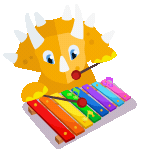Using Humor and Silly Mistakes to Teach Language Naturally
Laughter is more than just fun, it’s an effective learning tool. When kids laugh, they relax, engage more deeply, and remember things longer. This is especially true for language learning, where humor, exaggeration, and silly mistakes can help vocabulary and structure stick naturally.
Here’s how to use humor as a powerful part of your child’s second language journey.
1. Celebrate Silly Mistakes
If your child says something a little off like calling a banana a “broom” laugh with them, not at them. Use it as a chance to play with the word: “You tried to eat a broom? That must taste terrible!” Then gently model the correct term.
2. Use Exaggeration to Reinforce Vocabulary
Kids remember extremes. Say things like, “This cookie is gigantic!” and stretch the word out. Repeat it with gestures, funny faces, or pretend surprise. Repetition with energy makes new words more memorable.
3. Tell or Act Out Funny Mini Stories
Make up a silly character who mixes up words, uses wrong colors, or forgets names of animals. Let your child correct the character. This turns error correction into play.
4. Use Puppets or Toys for Joke Conversations
Create silly puppet chats: “Do cats fly?” “Do sandwiches sing?” Absurd questions get laughs and reinforce yes/no or question-answer structures in a low-pressure way.
5. Play Word Games with Nonsense Rounds
Games like “Which One Is Not Like the Others?” using made-up words (“apple, banana, snoodle”) get kids giggling while teaching them categorization and vocabulary awareness.
6. Pair Humor with Structured Tools
Funny content sticks better when it’s part of a consistent routine. Language programs like Dinolingo include animated stories, playful repetition, and themed lessons that use sound effects, silly characters, and gestures to keep learning light and engaging for kids aged 2–14.
Final Thoughts
Language learning doesn’t need to be serious to be effective. When kids laugh, they open up. They’re more willing to try, less afraid of mistakes, and more likely to retain what they hear.
So embrace the giggles. Add a little weirdness to your word games. And let the learning grow with every silly moment.
Sources:
Start Learning a New Language Today!
Best Language App for Kids.
7-day free trial. Then only $19/month. Cancel anytime.

